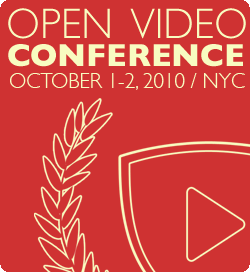If you follow me on Twitter, you’ll see in among the last several weeks’ dreck some Tweets skeptical of various themes about the Tea Party movement—chiefly that they’re significantly racist/xenophobic, or that they’re handmaidens of figures like Glenn Beck or Sarah Palin.
I may have been bending over backwards to resist attempts to define the Tea Party movement. In secret, I’ve thought about parallels to punk rock, which seemed at times to have as many strains as people. Part of being punk was not fitting into anyone else’s categories, and the Tea Party seems to have this quality—rejecting Washington, D.C.’s party labels and ideological affiliations.
Well, I’ve finally come across a careful assessment of the Tea Party movement. National Journal‘s Jonathan Rauch spent a good deal of time studying the Tea Party movement and came up with the article (and video), “How Tea Party Organizes Without Leaders.”
The winner paragraph for me:
“Essentially what we’re doing is crowd-sourcing,” says Meckler, whose vocabulary betrays his background as a lawyer specializing in Internet law. “I use the term open-source politics. This is an open-source movement.” Every day, anyone and everyone is modifying the code. “The movement as a whole is smart.”
I do believe there is something special about the Tea Party movement. Somewhat like the Internet regards censorship as damage and routes around it, the Tea Party routes around centralizers’ attempts to capture its mojo.
There are plenty working to capture its mojo: Right-wing and Republican leaders are using it to aggrandize themselves, marching in front of the Tea Party for TV cameras and newspapers. Left-wing groups and progressives are searching for—and finding—the racism and xenophobia that unfortunately does exist in any large collection of average Americans. The decentralized character of the Tea Party movement makes it easy for charlatans to claim its mantle and fund-raise deceptively on the “Tea Party” brand.
There are some bad people in the Tea Party movement, just like there are some bad users of the Internet. But overall a self-organizing political/cultural network will produce better things—and faster—than a hierarchical organization.
I’d love to have the Tea Party movement push for exquisitely libertarian outcomes, and I regret hearing Tea Party participants veer into anything resembling racism, fear of Islam, or anti-immigration rhetoric, but I don’t get to own the Tea Party either.
If there is a theme that doesn’t unfairly push the Tea Party movement into a box, I think it’s “self-government.” It seems like Tea Partiers are tired of being told how to do their politics, tired of being told how their government is going to run them. On the whole, I’ll stand up for a network of people who think like that—but don’t try to push me into a box either.
Update: David Boaz has written an excellent post at Cato@Liberty about the Tea Party movement’s relationships to libertarianism and social conservatism.


 The Technology Liberation Front is the tech policy blog dedicated to keeping politicians' hands off the 'net and everything else related to technology.
The Technology Liberation Front is the tech policy blog dedicated to keeping politicians' hands off the 'net and everything else related to technology.